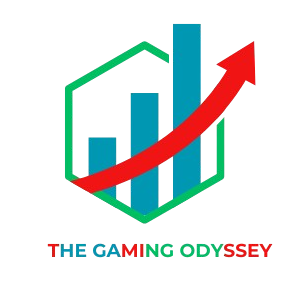Everything You Need to Know About the One-Day Liquor License in New York
If you’re planning a special event in New York and want to serve alcohol, you’ll likely need to obtain a one-day liquor license. This temporary license allows individuals or organizations to legally serve alcoholic beverages at a specific event for a limited period—usually just one day. Whether you’re hosting a wedding, fundraiser, corporate event, or other special occasion, understanding the requirements and process of securing a one day liquor license ny is essential to ensure your event is compliant with the law.
What is a One-Day Liquor License?
A one-day liquor license is a temporary permit granted by the New York State Liquor Authority (SLA). It allows event organizers to serve alcohol at a one-time event. The license is typically issued for a period of one day, but it can sometimes be extended depending on the event. It is specifically intended for individuals or organizations that don’t have a permanent liquor license but need one for a single event. Without this license, serving alcohol at an event would be illegal, potentially leading to fines, penalties, and the event being shut down.
Who Needs a One-Day Liquor License?
A one-day liquor license is ideal for:
- Nonprofit Organizations: Charities or nonprofit groups that are hosting events for fundraising or community outreach can apply for this license.
- Private Individuals: People hosting private events such as weddings, anniversaries, or milestone celebrations can also apply for the license.
- For-Profit Organizations: Businesses holding private events, like corporate gatherings or VIP parties, may also require a one-day liquor license, provided the event is not open to the general public.
It’s important to note that the license is only available for specific events, such as private gatherings, fundraisers, and private parties. It’s not available for open-to-the-public events like festivals or concerts, unless they are associated with a nonprofit entity.
How to Apply for a One-Day Liquor License
The process of obtaining a one-day liquor license involves several important steps. While the exact process may vary depending on the event type, here’s a general overview:
- Confirm Eligibility: Before applying, make sure your event meets the criteria set by the SLA. You will need to confirm that it is a private or charitable event and that it’s not open to the general public unless hosted by a nonprofit organization.
- Fill Out the Application: Applications for a one-day liquor license can be obtained from the SLA’s website. The application form will ask for detailed information about the event, such as the event location, date, expected attendance, and the type of alcohol being served.
- Submit Supporting Documents: You may be required to submit additional documents, such as proof of insurance, a copy of the venue’s rental agreement, and any relevant tax-exempt status if you’re a nonprofit organization.
- Pay the Fee: A fee is required when submitting the application. The fee varies based on the nature of the event and whether it’s for a nonprofit or for-profit event. Nonprofits typically qualify for lower fees.
- Approval: The SLA will review the application, conduct background checks, and ensure all necessary requirements are met. This process typically takes a few weeks, so it’s important to apply well in advance.
- Receive Your License: Once approved, you will receive your one-day liquor license, which must be displayed at the event venue during alcohol service.
Rules and Regulations
Once you have your one-day liquor license, there are several regulations you must adhere to:
- Age Restrictions: Alcohol can only be served to individuals who are 21 or older. It is essential that event organizers verify the age of guests, as serving alcohol to minors can result in heavy fines and legal consequences.
- Limited Service Hours: The SLA will specify the hours during which alcohol can be served. Alcohol cannot be served before or after these designated times.
- Responsible Alcohol Service: Servers must be properly trained in responsible alcohol service, including checking IDs and avoiding over-serving guests. The SLA may also require the use of designated bartenders or servers.
- No Public Access: For private events, alcohol should only be served to invited guests. If the event is hosted by a nonprofit organization, it may be open to the public, but it still must comply with the SLA’s guidelines for alcohol service.
- Insurance: Depending on the event’s size, you may need to provide proof of event insurance, which covers any liabilities associated with alcohol service.
Conclusion
Obtaining a one-day liquor license in New York is a straightforward process, but it requires careful planning and attention to detail. Whether you’re hosting a private wedding, charitable event, or corporate party, securing the right license ensures that you can legally serve alcohol while following all state and local regulations. By understanding the application process, required documents, and rules for alcohol service, you can ensure your event is successful and compliant with New York’s alcohol laws.…
